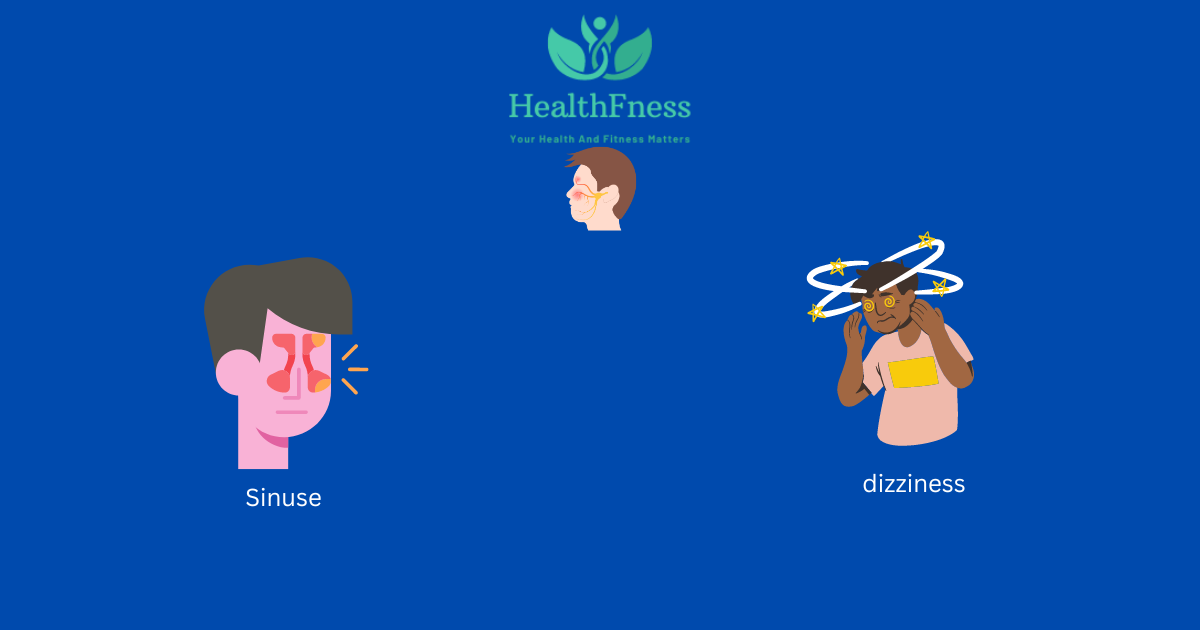How To Ease Sinus Pressure And Dizziness? Natural Solutions

Sinus pressure and dizziness can be debilitating, affecting daily life and overall well-being. The sinuses, air-filled spaces within the skull, play a crucial role in filtering, warming, and humidifying the air we breathe. When these sinuses become inflamed or infected, it can lead to a range of uncomfortable symptoms, including sinus pressure, congestion, headaches, and dizziness. Fortunately, there are several natural solutions that can help alleviate these symptoms, promoting relief and recovery.
Understanding Sinus Pressure and Dizziness
Before diving into the solutions, it’s essential to understand the causes of sinus pressure and dizziness. Sinusitis, the inflammation or infection of the sinuses, is a primary culprit. This condition can be acute or chronic, with various factors contributing to its development, such as allergies, colds, bacterial infections, and anatomical issues like a deviated septum. Dizziness, often accompanying sinus pressure, can be due to the congestion and pressure affecting the Eustachian tube, which connects the middle ear to the back of the throat, and plays a crucial role in maintaining ear pressure.
Natural Solutions for Relief
Stay Hydrated: Drinking plenty of fluids, especially warm liquids like tea or broth, can help thin out mucus, making it easier to expel. Hydration is key to keeping the sinuses moist and functioning properly.
Use a Humidifier: Dry air can exacerbate sinus congestion. Running a humidifier in your home, especially in the bedroom at night, can add moisture back into the air, reducing congestion and sinus pressure.
Nasal Irrigation: Rinsing your nasal passages with a saline solution can help remove mucus, debris, and allergens, reducing inflammation and congestion. Use a neti pot or a squeeze bottle with a nasal spray tip, and make sure to use sterile or distilled water and rinse the device thoroughly after each use.
Steam Inhalation: Inhaling steam from a bowl of hot water or a steam inhaler can help loosen mucus and reduce sinus pressure. Adding eucalyptus oil to the water can enhance the benefits, as it has natural decongestant properties.
Elevate Your Head: Sleeping with your head slightly elevated using extra pillows can help reduce congestion by facilitating mucus drainage, potentially reducing sinus pressure and dizziness.
Warm or Cold Compresses: Applying a warm compress to your face may help loosen mucus, while a cold compress can reduce pain and sinus pressure. Experiment with both temperatures to see what works best for you.
Dietary Changes: Incorporating foods rich in antioxidants, vitamins, and minerals can help boost your immune system, fighting off infections. Consider adding omega-3 rich foods, spicy foods that can help clear sinuses (like wasabi or horseradish), and foods high in vitamin C (such as citrus fruits and bell peppers) to your diet.
Herbal and Natural Supplements: Certain herbs and supplements, such as turmeric (for its anti-inflammatory properties), ginger (for its anti-inflammatory effects), and quercetin (which has antihistamine properties), may help alleviate sinus symptoms. However, it’s crucial to consult with a healthcare provider before starting any new supplements, especially if you have underlying health conditions or take medications.
Additional Considerations
- Allergy Management: If your sinus issues are triggered by allergies, implementing allergy avoidance measures and considering immunotherapy can be beneficial.
- Good Sleep Hygiene: Ensuring you get adequate, quality sleep can help your body fight off infections and reduce symptoms of sinus pressure and dizziness.
- Stress Reduction: Stress can exacerbate sinus issues. Engaging in stress-reducing activities like meditation, yoga, or deep breathing exercises can be beneficial.
Conclusion
While sinus pressure and dizziness can be challenging to manage, incorporating these natural solutions into your daily routine can provide significant relief. It’s essential to be patient and consistent, as it may take some time to notice improvements. If your symptoms persist or worsen, it’s crucial to consult with a healthcare provider to rule out any underlying conditions that may require medical attention. By combining these natural approaches with professional advice when needed, you can effectively ease sinus pressure and dizziness, improving your overall quality of life.
What are the most common causes of sinus pressure and dizziness?
+The most common causes include sinusitis (inflammation or infection of the sinuses), allergies, colds, bacterial infections, and anatomical issues such as a deviated septum. These conditions can lead to congestion, inflammation, and pressure in the sinuses, which may result in dizziness due to the effect on the Eustachian tube and overall balance.
How can I differentiate between a cold and a sinus infection?
+Differentiating between a cold and a sinus infection can be challenging, but key factors to consider include the duration of symptoms (sinus infections tend to last longer than colds), the presence of facial pain or pressure, the color of nasal discharge (thick, yellow, or green discharge may indicate a sinus infection), and the presence of fever. If you're unsure, consulting a healthcare provider is the best course of action.
Are there any specific foods that can help relieve sinus pressure and dizziness?
+By adopting these natural solutions and being mindful of your body’s response, you can find relief from sinus pressure and dizziness, leading to a healthier, more balanced life. Remember, understanding your symptoms and seeking professional advice when necessary are key components of effectively managing sinus health.


